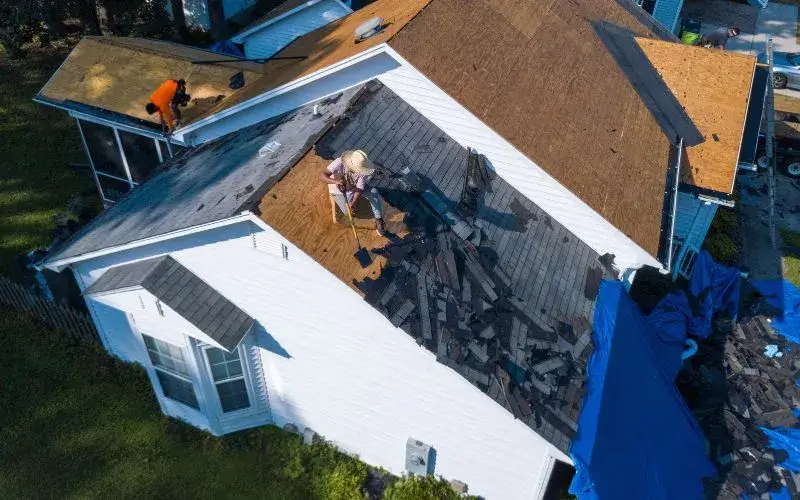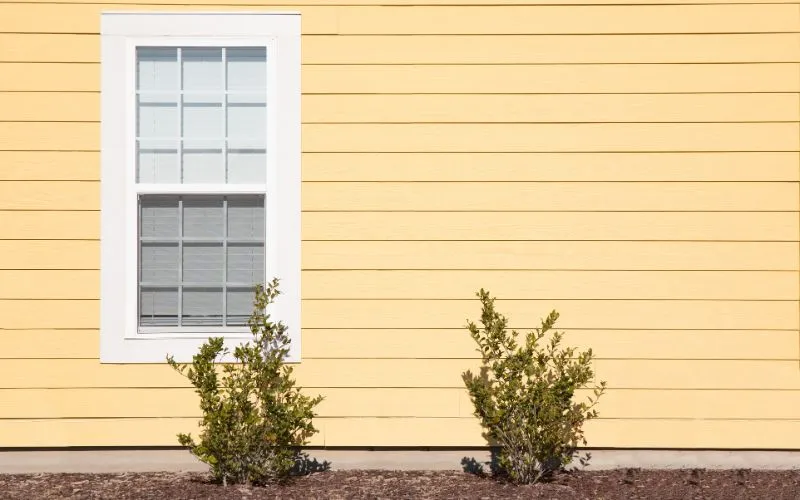How to Get Insurance to Pay for Roof Replacement in Illinois

Illinois homeowners know all too well the havoc that hail, wind, and heavy snow can can do to their roofs. The aftermath of roof damage is stressful enough without the added burden of navigating the complexities of roofing insurance claims.
While there's no guarantee that your homeowners insurance will cover your roof damage, understanding the process and preparation significantly increases your chances of getting your roof replaced and paid for by insurance.
This brief guide will explain the most important steps to take, empowering you to navigate the insurance process and increase your chances of a successful roofing claim.

Know Your Homeowners Insurance Policy
- Types of Coverage: So for most Illinois homeowners insurance policies include dwelling coverage (which protects the main structure) and coverage for other structures (sheds, detached garages, and more). Read your policy declarations page carefully to find your coverage limits.
- Deductibles: This is the amount you pay out of pocket before your insurance coverage kicks in. Homeowners in the US typically pay a 2% deductible for inland homes or 5% for coastal homes.
- Replacement Cost vs. Actual Cash Value (ACV): Replacement cost gives you enough to replace the roof with similar materials. ACV factors in depreciation due to age, meaning you may pay a significant amount yourself. So make sure to check your policy to see which type you have!

Team Up with a Roofer for a Successful Claim (Recommended)
While it's possible to handle an insurance roof claim on your own, partnering with a reputable Illinois roofing contractor in your area can offer significant advantages:
- Damage Assessment: Trained roofers may identify hidden storm-related damage that the average homeowner or insurance adjuster would miss. A thorough assessment ensures everything is noticed, strengthening your roofing claim.
- Insurance Expertise: Roofing contractors with experience in insurance work understand the language and procedures. They can review your insurer's estimate, to make sure all necessary repairs are included. Roofers can also advocate for you if discrepancies exist.
- Quality Workmanship: Your goal isn't just getting the claim approved; it's ensuring a proper roof replacement. Reputable roofers can guide you on material choices covered by your policy and guarantee a job done to the highest standards.
- Reduced Stress: Dealing with insurance companies can be time-consuming and stressful. Having a professional roofing company on your side can relieve a considerable amount of burden.
Choosing the Right Roofing Contractor
Just an FYI, not all roofing contractors are equal. If you do plan on getting assistance from a roofing contractor for your roofing insurance claim, make sure they have the following:
- Local Experience: They'll understand Illinois weather patterns and common types of roof damage.
- Insurance Claim Knowledge: Ask about their experience assisting homeowners with roofing claims and their process.
- Licensing & Insurance: Make sure you work with a roofing contractor that is properly licensed, bonded and insured in Illinois.
Important Note: Some roofers engage in unethical practices like inflating costs after your claim is approved. Thoroughly vet any contractor you hire, and be wary of upfront payment demands that exceed your deductible. Make sure the roofing contractor you choose has a great reputation online!

Know the Signs & Act Fast
- Illinois Weather Woes: Hail, high winds, heavy snow loads, and ice dams in the northern parts of the state are all common culprits of roof damage. Don't assume minor-looking issues don't warrant a claim.
- Signs of Trouble: Leaks are the obvious sign, but you can also look for missing shingles, cracked flashing, granules in your gutters, and interior signs like water stains on your ceiling.
- Don't Delay: Many policies have time limits for filing. Even if you're unsure about the extent of roof damage, schedule a free roof inspection and your roofing contractor should in most cases provide a detailed report, document the date of the damaging event, and guide you through the claims process.

Document Everything for Your Claim
- The Power of Photos: If you're going to DIY your roofing claim be sure to take photos and videos of your roof's condition BEFORE any storms, if possible. After the damage, get wide shots showing the whole roof, plus close-ups of broken shingles, hail dents, etc.
- Safety First: If your roof is steep and the damage is severe, don't attempt to climb on the roof yourself. Most roofers in Illinois offer free inspections, which can provide good documentation.
- Receipts as Proof: Save receipts for any emergency repairs (roof tarping to prevent leaks), materials you buy for DIY fixes, and even hotel stays if your home is temporarily uninhabitable due to the roof damage.
- Contractor Estimates: Get at least two detailed written estimates from roofers.

Facing Challenges of Pre-Existing Roof Issues
Unfortunately, insurance claims are likely to be denied if the damage is attributed to poor maintenance, wear and tear or age. Don't be discouraged by a denial – gather additional evidence, consider professional help, and understand your rights to appeal.
Here's what you can do:
- Review your homeowners insurance policy carefully to see if it excludes wear and tear or what maintenance is required for coverage to be valid.
- Gather Documentation of past inspection reports, receipts for repairs, or photos showing you took care of your roof.
- Get an assessment from a respected roofing company in the Chicagoland area that can provide unbiased documentation of the roof's condition. They may also be able to identify storm-related damage that you or the adjuster missed (happens often).

Working with Your Insurance Company
- Initiating Your Claim: Follow your insurer's procedure, likely a phone call or online form.
- The Adjuster Inspection: The adjuster will assess the damage and determine coverage. It is recommended that a roofing contractor be present during this inspection to advocate on your behalf.
- Understanding the Estimate: Your insurer's adjuster will estimate necessary roof repairs or replacements. Compare this carefully to your roofing contractor's estimates, and question any significant discrepancies if they exist.
- Approval, Denial, or Partial Approval: Be prepared for these outcomes. If denied, don't give up! Ask for specific reasons in writing. You may be able to appeal your claim in most cases with additional evidence or the help of a public adjuster.

Conclusion
Dealing with roofing claims in Illinois can be indeed complicated, but understanding your homeowners insurance policy, documenting thoroughly, and choosing a trusted roofing contractor improve your odds of a successful outcome, significantly. Sadly, bad weather is inevitable and unpredictable. So, being informed empowers you to protect your home and your investment. Carefully review your insurance coverage before a crisis hits, understand the claims process and don't be afraid to work with a reputable roofer. Taking these proactive steps now can save you significant money and stress down the road.


.webp)


